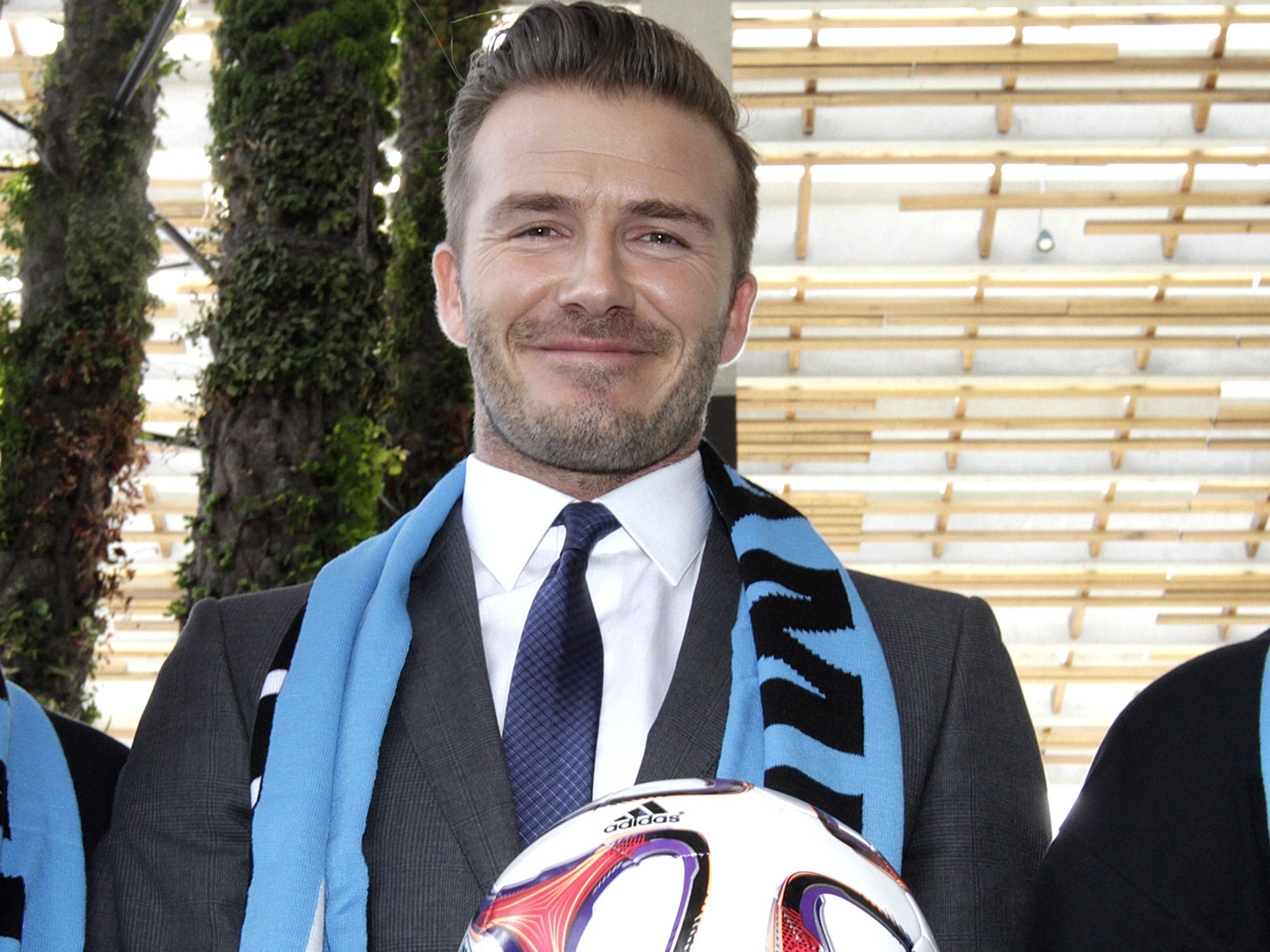David Beckham hits the wall in his fight for a football stadium in Miami's port area
An alliance of locals supports the former England captain's MLS franchise, but believes there are better sites for the proposed 25,000-seat venue

Your support helps us to tell the story
From reproductive rights to climate change to Big Tech, The Independent is on the ground when the story is developing. Whether it's investigating the financials of Elon Musk's pro-Trump PAC or producing our latest documentary, 'The A Word', which shines a light on the American women fighting for reproductive rights, we know how important it is to parse out the facts from the messaging.
At such a critical moment in US history, we need reporters on the ground. Your donation allows us to keep sending journalists to speak to both sides of the story.
The Independent is trusted by Americans across the entire political spectrum. And unlike many other quality news outlets, we choose not to lock Americans out of our reporting and analysis with paywalls. We believe quality journalism should be available to everyone, paid for by those who can afford it.
Your support makes all the difference.When David Beckham arrived in Miami last month declaring his determination to be an “enemy” of no one with his bold plan to build a sexy, state-of-the-art soccer stadium slap in the heart of its port area he surely already knew he was being naïve. Lo and behold the forces against him are mustering.
Trouble for the star of turf and the runway materialised this week with a full-page advertisement in the local newspapers arguing that far more important to the city would be preserving the site for the expansion of the port as it prepares to take advantage of the soon-to-be-completed expansion of the Panama Canal.
The advertisement, which appeared on Monday in the Miami Herald under the headline ‘Here We Go Again’, was placed by a newly formed alliance of port-based interests led by Royal Caribbean, the cruise line that is headquartered at the port, as well as unions and companies involved in servicing the passenger and cargo ships that crowd its wharfs as well as a local billionaire car-dealer, Norman Braman.
Unveiled in March, the blueprint for Mr Beckham’s dream involves a sleek 25,000-seat stadium that would be home to the new Major Soccer League franchise for Miami that he will own. There would also be shopping, office space, a hotel and an outdoor plaza for film screenings and World Cup viewing parties.
While there are three other possible sites for the facility, the port is where Mr Beckham would like to be. The stadium would face the high-octane skyline of downtown Miami and sit against a backdrop of cruise ships and the sparkling harbour. “At the moment it’s a view that can only be seen by people with yachts, or cargo ships or by fish,” his property development advisor, John Alschuler, said at the time.
“We don’t want to be an enemy to the people who are opposing the stadium,” Mr Beckham said while he was in town last month. “I want to work with them to change their mindset about the fact that we are here to help the community and help Miami”.
It was a charm offensive, however, that may not have worked. “The Alliance wholeheartedly supports a soccer franchise in Miami and believes there are other sites that would benefit greatly from a stadium,” Monday’s advert said. “However, PortMiami is not one of them, due to the risks a port stadium would pose to jobs, cruise and cargo operations, security, and the port’s promising future.”
Taking the lead in the anti-stadium consortium is John Fox, a former Royal Caribbean vice president. “What the alliance thinks is that port property should be used for port purposes,” he explained. Among the concerns are the traffic the stadium would generate and the parking needed for 5,000 cars. “There are plenty of other places for the stadium to be,” Mr Braman said in an interview with the Herald.
When first proposed, the franchise plan was embraced by local leaders including Mayor Carlos Gimenez, not least because Mr Beckham promises to build the stadium with private, not public funds (though he would ask for state subsidies up to $40 million over 20 years). But any final agreement will need the support of City Commissioner’s, some of whom are already signalling reservations about the port location.
The Beckham forces are striking back, arguing that games at the stadium would be scheduled to avoid clashing with cruise ship arrivals and departures. “The plan doesn’t interfere with port operations,” Neisen Kasdin, another adviser to the Beckham group insisted. “It will likely generate more revenue for the port in the shorter term than other concepts that have been discussed.”
“People are responding to speculation,” Mr Alschuler said in response to the newspaper spot. “I’ve got confidence that commissioners, when presented with a formal recommendation by the mayor - and a full, factual briefing - will respond to the facts.”
Join our commenting forum
Join thought-provoking conversations, follow other Independent readers and see their replies
Comments